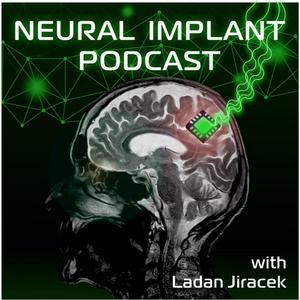Eugene Daneshvar: Navigating Neurotech IP with Fairer Pricing and Entrepreneurial Spirit
In this episode of the Neural Implant Podcast, we welcome Dr. Eugene Daneshvar, founder of Black Swan Intellectual Property (BSIP), a boutique law firm specializing in intellectual property for neurotech and medtech innovations. With a background in biomedical engineering and law, Eugene has a unique perspective on protecting the cutting-edge ideas that drive the future of healthcare technology. After years of working at a larger firm, Eugene founded BSIP to provide more accessible, fair, and transparent pricing for IP services, moving away from the traditional hourly billing model. In addition to his work in intellectual property, Eugene also offers strategic counsel for fundraising and business development, helping startups navigate the complexities of commercialization in the medtech and neurotech space. Top 3 Takeaways: "It’s difficult to change large organizations. I had tried to build a neurotech-focused practice, but my previous firm wasn’t on board. The firm was primarily focused on pharma, with much deeper pockets than neurotech, and they controlled my hourly rate, which reached $1200 an hour. It was too steep for my clients in medical devices, so I decided to create a firm that would be more accessible and help those startups – I became an entrepreneur myself." "The most exciting part is that I switched to flat-fee billing, so no more billable hours. Everyone dislikes billable hours, and this approach creates a win-win situation for both myself and my clients. It provides predictability in costs, and it saves me time since I no longer have to track every minute of my work." "I offer deferrals based on what clients need—whether it's 30 or 90 days, or until they secure funding. Sometimes, I even take shares instead of cash, depending on the opportunity. As an angel investor with Life Science Angels, I help life science startups raise capital, typically between $200,000 and $1 million, by ensuring they are prepared for investment. 0:30 Do you want to introduce yourself better than I just did? 3:15 What are you specializing in? 4:15 Why do you think you're competent in this field? 9:30 What is a typical price for your services? 12:45 What are some other services that a neurotech company might need? FogartyInnovation.org 16:30 How does being a small law firm affect reputation? 22:45 What is missing most? Or what is something that you wish people would know? 27:45 Is using AI an issue more for generating the patent claim or writing the claim? 31:00 So you feel confident that your job is safe from AI?

